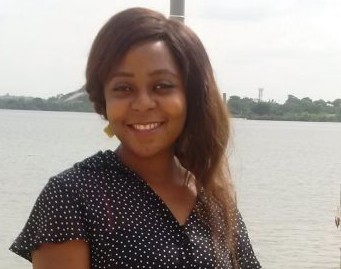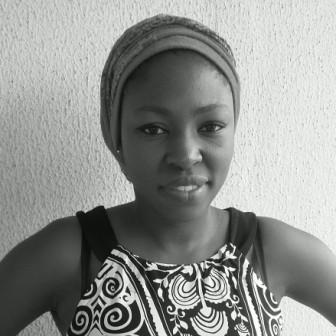Sequel to our past findings and reports on the challenges militating against the #WaterBachaka, Follow The Money (Bikudi) Team once again visited Bachaka community to engage the people on the progress so far and whether GGW Agency has eventually looked into the issue of inadequate provision of Water for the dry crops and Orchards within their community. The responses we got from them were documented below:
The Head of the community who is also the Maiyaki of Bachaka Community spoke us first. “We are just waiting for them to complete what they started, they came callings on us to make the GGW project a success by getting our women and youth involved, yet they are the ones that have messed up the project themselves because most of the trees and plants in the Orchard are dying off due to unavailability of water source to wet them”. he explained.
Alhaji Barmu Liman, Head of Farmer in Bachaka bore his mind on the plight of GGW water project, “I even persuaded my wife to support the project since inception when they came. During the launching they brought two tractors that have tank for watering the Orchard, when the Orchard were at still nursery stage. But after sometimes we didn’t see them again. We later discovered that those tractors are still within a nearby community close to Bachaka. They have been abandoned there, he explained.
Speaking as the head of farmers in Bachaka, he said their annual yields and farm produce have dropped since they do not have water to support their plants and crops. “we have to wait for raining season for us to plant any crop because without adequate water supply they might dry up” he affirmed.
“Myself and other women within the community were given some portion of the Orchard which consist of varieties of plants at the nursery stages such as oranges, watermelons, mangoes, tomatoes, Dongoyaro trees to wet and nurture till they grow big, but they have refused to build more water sources to ensure the success of these project. They promised us that we wont lack water to wet those Orchards since there would be several water sources for us, till now we are yet to see those water sources” said Hajia Hauwa Barmu Liman.
She added that Bachaka women suffer to access potable water on daily basis, we have to spend more than N1,500 monthly to buy water. Our fear is what if the only borehole we fetch water from suddenly pack up what will become our fate?, she lamented.

Hajia Barmu Liman, Bachaka Women Leader
GGW Local Supervisor in Bachaka, Yayah Mohammed in his comment said, GGW States Representatives had come with good intention at the beginning but refused complete it. “We were given quite a lot of assignment to do but they wouldn’t compensate us” They promised to provide us with accommodation close these Orchards for effective and proper monitoring, they are yet fulfill it. he affirmed.
Saliu, who is an unskilled labourer, has a different story to tell, he said, himself and other community youth were employed as labourers and as securities at the commencement of the project, but they have not paid their entitlement and wages till now.
We are appealing to the National Agency for Great Green Wall in Kebbi State, to come and fulfill their promise to Bachaka, and also to save these Orchard from drying up” Currently the only source of water is solar powered water tank which is not enough to cater for these Orchards, another major barrier is transporting the water to Orchards to the nearby communities to wet the plantations. No vehicle is available to do this said Salihu, APC chairman Bachaka Community.
FOLLOW THE MONEY TEAM EFFORT
Having engaged the Bachaka community previously to know the efforts that GGW Agency in Kebbi state has made towards reviving the dead Water Sources for the GGW projects within their community, we further engaged the major stakeholders of the GGW projects in meeting at Modiyawa Hotel in Birni Kebbi on the 25th May 2016. The meeting commenced exactly 10am. We had representatives from Ministry of Environment and Ministry of Water Resources, more than five representatives from Bachaka Community and Media houses such as Kebbi TV and NTA Kebbi.
The stakeholders meeting was interactive session aimed at getting the Kebbi State GGW Representatives to interface with people of Bachaka and also to suggest possible way out. Engr. Aminu Umar from Kebbi State Ministry of Water Resources, who gave vivid explanation of the involvement of Kebbi State Ministry of Water Resources in GGW project. “Ministry of Water Resources was never part of GGW project we only came in to help built borehole and water Tank for the project at the initial stage of the GGW project, which we later got compensation from GGW” In other words, we were paid back the money spent in building the borehole at Bachaka Community.
When asked whether he is aware of the condition of borehole, he said, he knew the borehole got spolit later when the GGW project began, “Initially, it was built and powered by solar but some unscrupulous people stole the solar panel, till now we couldn’t find the culprit. In spite of this we were able to provide them with small generator which they to pump the water for use, yet they refuse to fuel it.
Representative from the Ministry of Environment, Alhaji Umar B. Diggi, he is the Head of Forestry and also double as the Spokesperson for GGW project in Kebbi State, commenting on the issues of #WaterBachaka, “We knew from the outset of this project that such incidence of vandalism and theft may occur that was why we made the project a community owned project, giving them sense of belonging in GGW project,”
When asked the efforts of GGW to revive the water source, he said, “I want you to know that GGW doesn’t have an office in Kebbi, it is just a programme that is being run under Ministry of Environment, so there are still many challenges confronting this project, “There is institutional challenge for GGW project in Nigeria”. Although GGW is gradually becoming an Agency on its own, despite this, at state level we are still struggling.
He also gave some spending analysis on 10 million Naira that was released for the project in Kebbi state. He said the money were divided according to the communities that are beneficiaries of the GGW project. “We did water projects in several other communites in 2 Local Governments, namely:(Arewa LGA) which includes Koro Ango, Bachaka and Tsulawa; (Dandi LGA) which include Agwa Hassan and Tukuruwa amongst others.
Diggi stated further that there are plans on the part of the Federal Government to collaborate with the 11 frontlines states in the North where GGW project is ongoing. “There is a deliberation on the collaboration between the 11 states involved and National Agency GGW for counterpart funding agreement, albeit yet to implemented still in the pipeline” We are hoping that this collaboration yield good results he said.
Boiling with anger, Head of Women in Bachaka, Hajia Barmu Liman, asked the State Ministries in Hausa what have they been using the funds meant for the GGW for? “What have you been using all the money government has been releasing for GGW for? Who is eating the money? We cannot continue to use our money to fuel the generator after giving our lands to support the GGW projects” She said.
There was an intense interactive session between the people of Bachaka and State Ministries Representatives, however they recommend that People of Bachaka could form a committee that would manage the borehole and Water Tank by raising funds to buy fuel to power the generator to pump water temporarily, pending the state government and possibly GGW Agency’s intervention.
Regarding the non-payment of securities and labourers they said they have disengaged them temporarily because of the issue of funding. And promised to pay them as soon as it is resolved.













